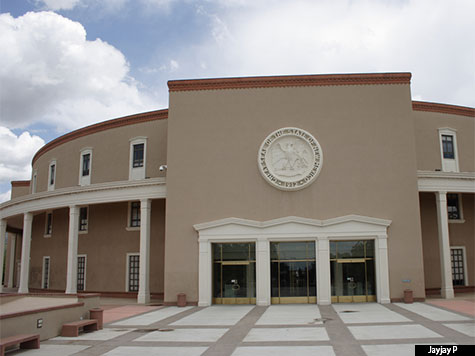
Democrats should be worried about more than just the U.S. House and Senate.
If President Obama’s poll numbers remain underwater, Republicans are poised to capture control of several state legislatures this fall. The GOP could capture as many as 8 state legislative chambers in November and pick up seats across the country.
“Republicans are poised to gain control of chambers in blue states and purple states across the country,” John Loe, spokesman of the Republican Legislative Campaign Committee, told Breitbart News. “With issues like Federal Balanced Budget Amendment legislation passing in state houses, and Democrats’ weak legislative record, voters are going to reward us this fall. Republican dominance in state houses will expand to historic highs after this election.”
An under-appreciated story of the 2010 midterms is the historic gains made by the Republican party at the state level. The party flipped around 675 seats, far more than their gains in the 1994 wave election. Moreover, the party reversed the partisan control of state legislatures and allowed the party to play a strong role in legislative redistricting. This advantage will likely keep the party in control of the US House of Representatives for the next decade.
At their high-water mark the day President Obama was inaugurated in 2009, Democrats were dominant at the state level. The party had picked up 21 seats in the House in the 2008 elections, expanding their majority in the chamber. In the Senate, the party picked up 8 seats, given them effectively 59 seats, the most since the Carter Administration.
The Democrats also had complete control of the state legislatures, both state House and state Senate, in 27 states. The Republicans had unified control in only 14 states. The Democrats held more governorships than the Republicans, 26-23. The Democrats held almost 800 more state legislative seats than the GOP. After 2010, the parties’ positions were reversed.
In the aftermath of the 2010 elections, Republicans held the Governor’s mansion in 29 states, while the Democrats held just 20. Republicans had unified control of the legislature in 25 states; the Democrats controlled just 16. Republicans also held almost 600 more state legislative seats than the Democrats, the GOP’s best showing since the 1920s.
In 2012, Democrats inevitably clawed back some of these losses with Obama’s successful reelection. The overwhelming majority of the GOP gains in 2010 remained, however. As a result, Republicans don’t have as many opportunities as they did in that midterm election. Still, the party is poised to make some important gains.
Top of the party’s list are the Kentucky House and West Virginia legislature. These border states are the last to retain the traditional Democrat hold on state legislatures in the South. Only half of the West Virginia state Senate is up for election this cycle, so Republican control of that chamber may take two elections.
Republicans need to just flip 3 seats to take control of the state House in New Mexico, which has had a Democrat majority since 1953. The party is also just a couple seats away from taking the majority in the state Senates in Colorado, Iowa and Washington. Flipping one seat would give Republicans control of the Nevada Senate.
The Republicans lost control of state Houses in New Hampshire and Minnesota in 2012. The party is likely to regain control this November.
The recent Republican dominance in state capitols has resulted in the passage of ambitious, pro-market and pro-liberty reforms at the state level. Right-to-work, tax cuts, spending reforms and expanded school choice and charter schools are providing a real-time experiment in Republican policies.
In many respects, the Republican gains in statehouses could have more lasting, long-term impact than the party’s gains in Congress. Justice Brandeis called states the “laboratories of democracy.” Increasingly, Republicans are setting the “research” agenda.

COMMENTS
Please let us know if you're having issues with commenting.